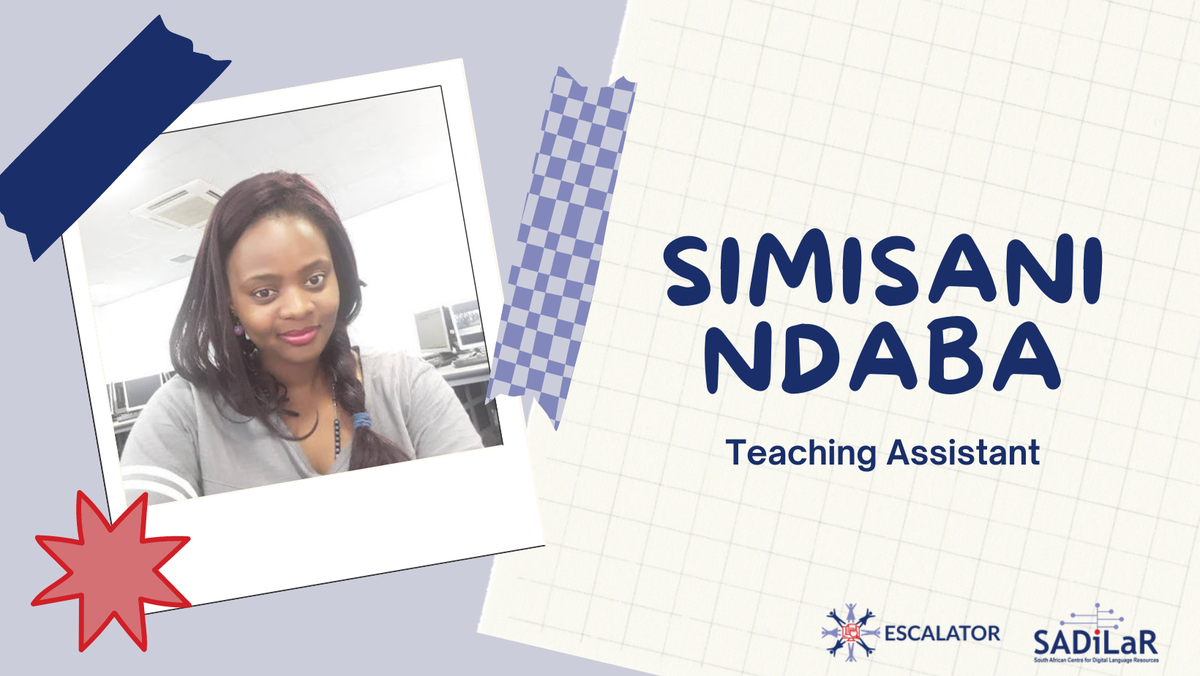International Women's Day event panellist: Meet Simisani Ndaba

Today our spotlight shines on Simisani Ndaba. Simisani is a computer science teaching assistant at the University of Botswana as well as the founder and co-organiser of R-Ladies Gaborone. She will also be a pannelist on our Women’s Day Event on the 8th of March 2024. .
In short
- Preferred name and surname: Simisani Ndaba
- Affiliation (where do you work or study): University of Botswana
- Role: Computer Science Teaching Assistant
- LinkedIn: https://www.linkedin.com/in/simisani-ndaba-90843650/
- GitHub: https://github.com/sndaba
- Twitter(X): https://twitter.com/simisani10
📽️ What is your all time favourite movie and what makes it so special?
Interview with the Vampire, it’s a haunting story that makes you think about the time we have in life with special effects that are visually appealing and was one of the first movies I enjoyed when I was a child.
📚 Can you describe your background and your current role?
What line of work are you in?
Academics and research at the university.
Give a short summary of what you do in this role
As a Teaching Assistant I assist lecturers with tutorials, computer programming exercise lab sessions, tutorials. I also teach computer programming as well.
What did you study?
I studied Computer Information Systems and Business Information Systems.
How did you get involved in the tech space?
I got involved in the tech space while I was studying for my Masters in 2016. Coming from a Business Analysis background, I had to learn how to program with Python for my dissertation then later learnt R after I joined the R community in 2021.
What software do you use on a daily basis in your job?
At work, I mostly use Visual Studio Code and Netbeans for Java programming and MySql for managing databases ( even though most people don’t see it as a programming language).
How did you learn to use these tools?
I learnt how to use these tools by developing programs that had to work as an example of how student’s programs should be working. I used documentation outside the University recommended textbooks.
Which tool has the biggest impact on your ability to succeed at work?
It will have to be Visual Studio Code because I use it for Object Oriented Programming and is the base programming language first year to final year students use for their projects.
Do you think women are well represented in your line of work?
In the department I work in and local colleges, there are women who lecture Java, Sql and Assembly Language courses and who are involved in coding community organisations such as CoData. I would say women are represented well in Computer Science academics. In addition, the banks in my country are making an effort to absorb women in their technology departments to reduce the gender underrepresented gap. This has changed people’s attitudes towards women in the technology industry and are more accepted as tech professionals.
🌱 Tell us more about your community of practice
Describe the purpose of this community from your point of view.
The purpose of R-Ladies is to provide a space where people who identify as belonging to a gender minority group in the R community can engage in mentorship programmes, receive assistance in community building and enable interaction with other R practitioners you would have never had the chance to contact. The community also supports knowledge sharing with online and in-person R workshops.
How did you get involved?
While I was studying my Masters, I attended a Research Data Management workshop where R was used as the data science tool. I became interested in using it as an alternative to Python. However, I only had time to participate in the community a year later after I completed my studies when I was more available.
Why do you find it useful to be a part of this community?
Joining the community allows you to see what other developers are working on in their Data Science projects as inspiration to incorporate in your own work. It’s also a chance to participate in project collaborations to work on techniques like reproducible preprocessing methods in Machine Learning you always wanted to be involved in.
Is your community accessible and welcoming to women? If so, how?
The R-Ladies community allows contact from interested data scientists. You can reach out to them by sending an email to info@rladies@org or follow them on their social media. There is a code of conduct policy applied and followed at https://rladies.org/coc/ which facilitates inclusivity.
How can other people become a part of this community?
To get involved in the community, you can join a local chapter in your area and join their slack channel as well. You can see how to get involved in many ways, https://rladies.org/about-us/involved/. There is a R-ladies community channel you can join to see the different activities to participate in, https://airtable.com/appJZFYABfCIdPYMR/pagw7FJB5tm2UQ55o/form.
What other communities of practice are you a part of?
I am part of the Carpentries and I am a Carpentries Instructor.
💡 What advice do you have for women in Humanities and Social Sciences (HSS) eager to grow their computational skills?
I would suggest following tutorials to get familiar with computational analysis and to also guide them in programming. These types of tutorials explain lines of code and the logic behind them. I would also suggest that they join a local coding community even if it is online so that they can reach out to other members in those communities for assistance in reaching an expert and links to resources.